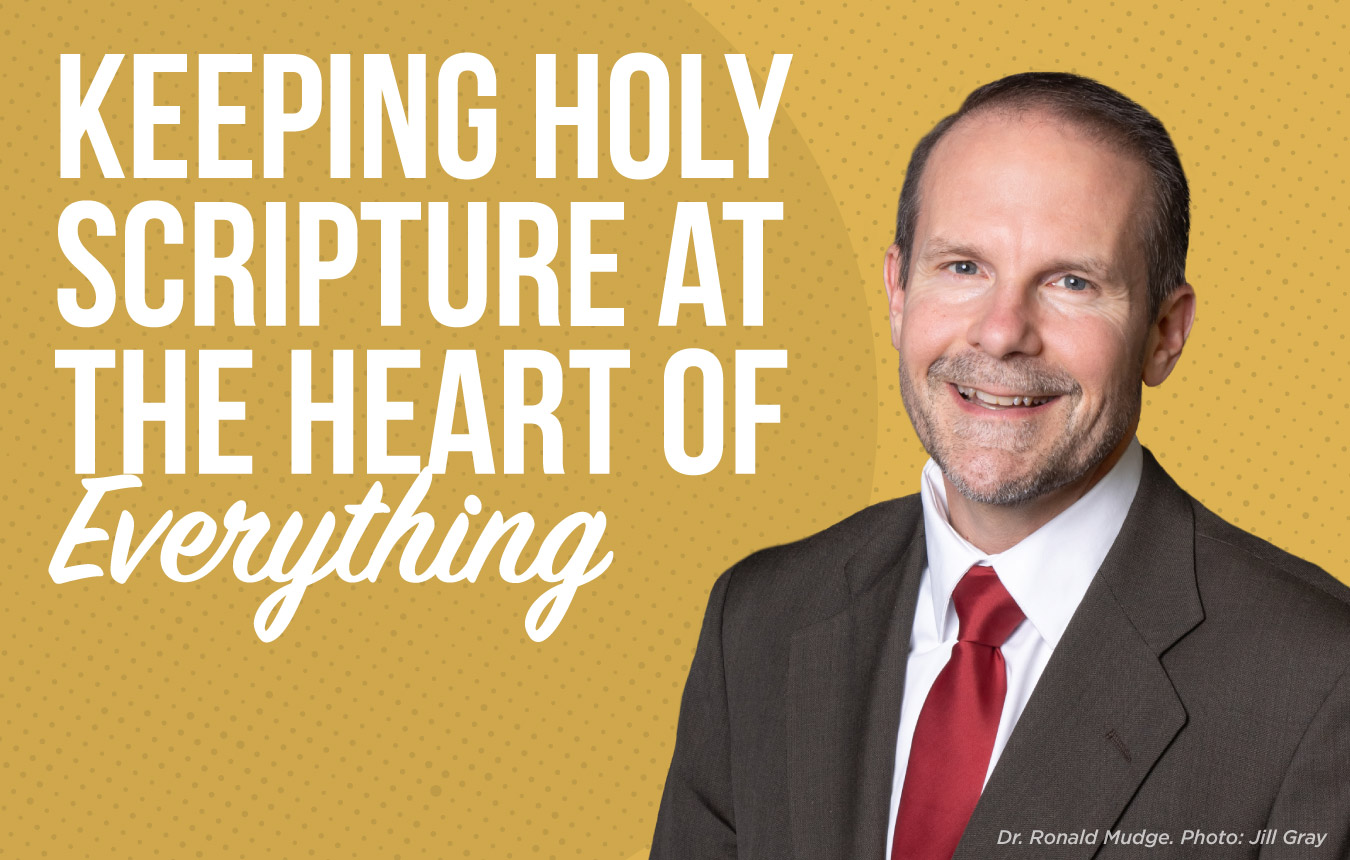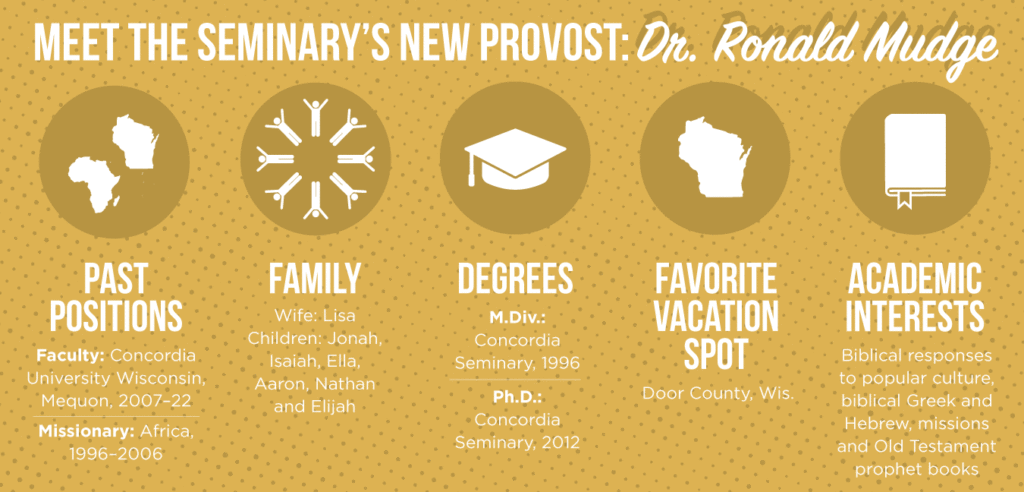
Concordia Seminary Newsroom
Keeping Holy Scripture at the Heart of Everything

by Tim Barker
It was near the end of his 10-year mission in French-speaking Africa when Dr. Ronald Mudge found himself sitting on a motorcycle that had stalled and refused to start. Before Mudge could get off the motorcycle and try to push start it by himself in the sweltering heat, out of the blue, two bystanders rushed over and pushed the motorcycle until it started.
As problems go, this was hardly the worst thing Mudge — the new provost and chief academic officer at Concordia Seminary, St. Louis — and his family faced during their time in Africa. There was a civil war. They witnessed massive poverty. They fought malaria and dysentery.
But that motorcycle encounter exemplifies the kindness of the people he met there: “There’s just this attitude. Life’s tough and you need help. If I can help you, I will. And if you can help me, please do.”
 Asked to look back on his missionary experiences as he transitions to his new role, Mudge said he is reminded of what’s possible when kindness is paired with God’s intimate involvement.
Asked to look back on his missionary experiences as he transitions to his new role, Mudge said he is reminded of what’s possible when kindness is paired with God’s intimate involvement.
“I think sometimes in America, we like to create this illusion that if God’s not involved, we’ll still be okay,” he said. “But the reality is that we need God to be involved in our day-to-day lives to protect us, guide us and bless the work that we’re doing.”
Before coming to St. Louis in May, Mudge served as The Rouse Professor of Pre-Seminary Studies at Concordia University Wisconsin, Mequon. He also was director of the pre-seminary program, where he helped boost enrollment through a variety of initiatives. During his tenure, he earned the respect and appreciation of students, administrators and faculty, said Concordia Seminary President Dr. Thomas J. Egger.
“He is energetic, wise and caring,” Egger said. “He is not someone who merely ‘puts in the time.’ He looks honestly at situations and has a track record of finding creative ways to improve them.”
In truth, the new provost’s move to St. Louis is a homecoming of sorts. Mudge earned a Master of Divinity (M.Div.) and Doctor of Philosophy (Ph.D.) from Concordia Seminary in 1996 and 2012, respectively.
And as he returns to campus, he sees a lot of things that are going well.
“We run a tight ship. So, there’s not really something that’s broken and needs to be fixed,” he said. “People know their jobs and are doing them well. They’re passionate about them and they’re enjoying them.”
With that in mind, he envisions success as helping the Seminary and its community become “even better.” And one of the ways to get there is through increasing enrollment.
“We want to invite everybody. We recognize that the Lord has given us a world with a wide variety of racial and ethnic backgrounds and personal histories,” he said. “And as we look to success, we expect to see just more and more people in general, and a wide variety of people who are coming in answering the call from the Lord.”

Academically, Mudge is an Old Testament theologian, whose interests include prophetic books, biblical responses to popular culture, and biblical Greek and Hebrew. He’s currently researching Zephaniah for a scholarly Lutheran commentary.
His theological education values and goals are shared by Egger, who said they both are committed to keeping the Holy Scriptures at the center of student preparation.
“We want to cultivate a ‘mission heart’ in our students, a genuine concern for sharing the Gospel with the lost,” Egger said. “And we seek to treat others with kindness and care and to cultivate a campus community of hospitality and mutual service, so that students form close bonds with one another, with the faculty and with the church during their years on our campus.”
Among the Bible verses from which Mudge draws guidance is Eph. 2:8–10 ESV:
For by grace you have been saved through faith. And this is not your own doing; it is the gift of God, not a result of works, so that no one may boast. For we are his workmanship, created in Christ Jesus for good works, which God prepared beforehand, that we should walk in them.
“I love these three verses together, because they very deliberately drive home the point that we do not contribute to our salvation. We receive it entirely as a gift,” he said. “God has given us grace. And we share that grace with others. And we live in a graceful way toward others, which is pretty much the Christian life in a nutshell.”
Mudge also takes inspiration from his wife, Lisa, and their six children: Jonah, Isaiah, Ella, Aaron, Nathan and Elijah. He sees their 27 years of marriage as a wonderful teaching tool for building and maintaining relationships, which demand a willingness to serve, forgive and understand.
“That aspect of our family and the gifts the Lord has given me through Lisa and the kids is really a foundation as I approach this work,” he said. “In many ways, this is a model for the sorts of loving, serving, forgiving, grace-filled relationships that I want to have.”
Tim Barker is an Orlando, Fla.-based freelance writer.